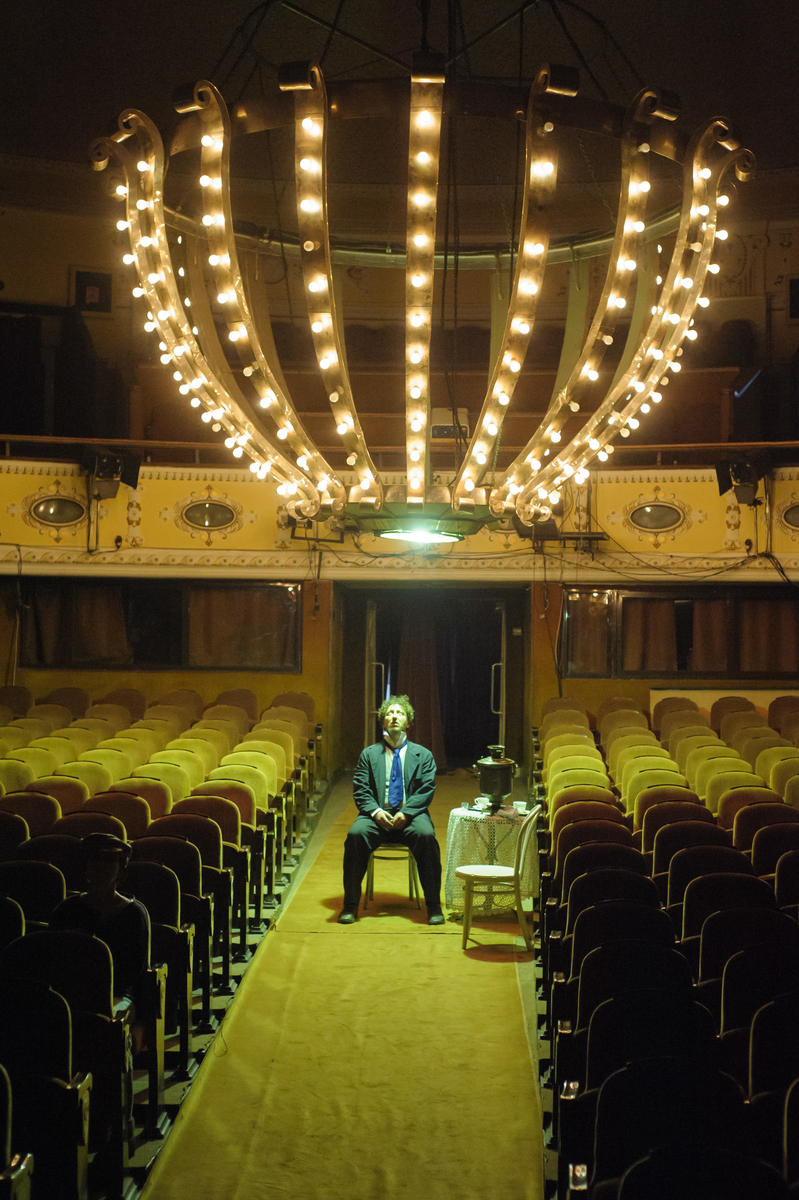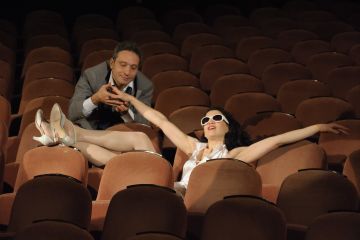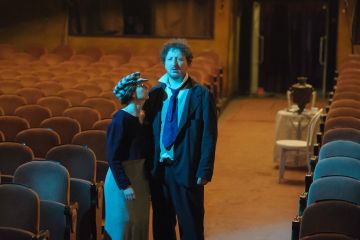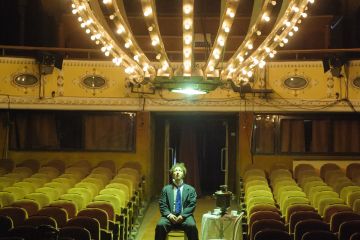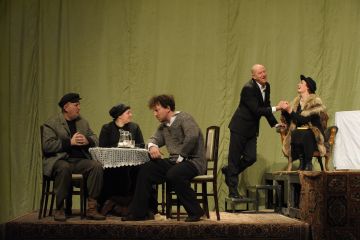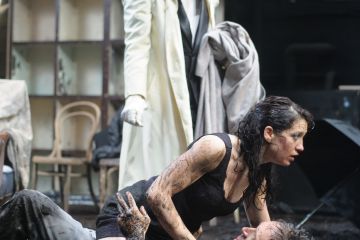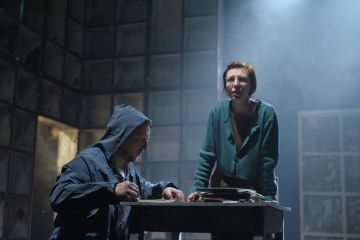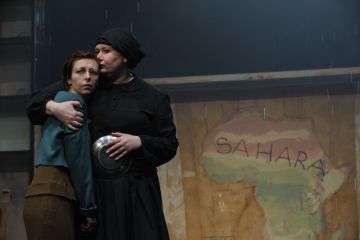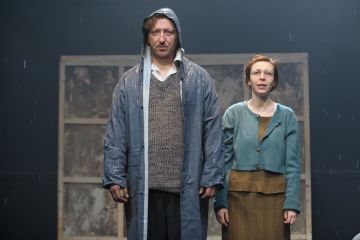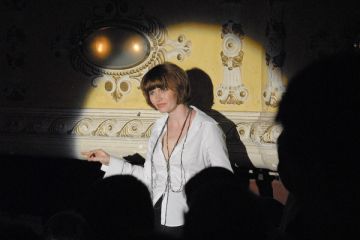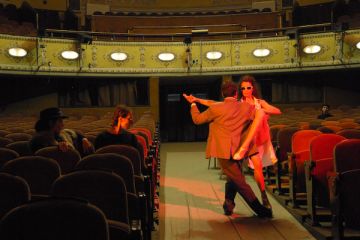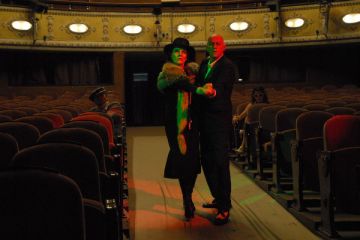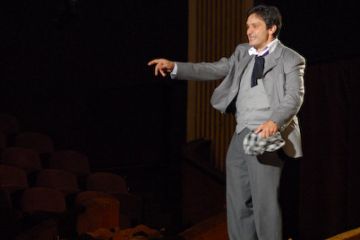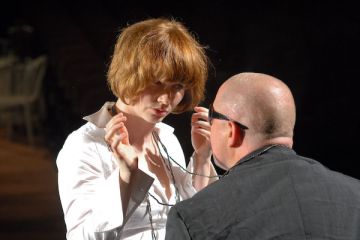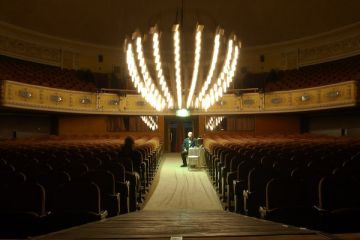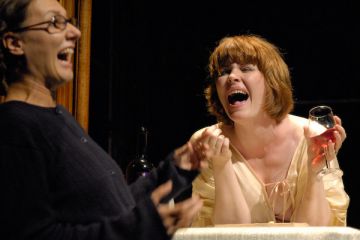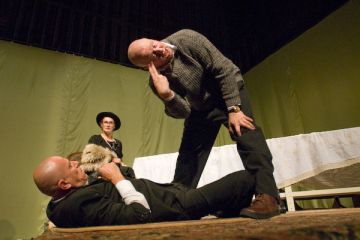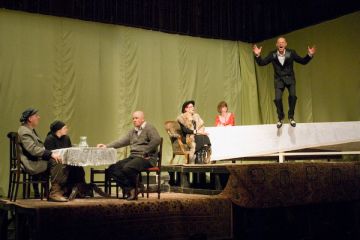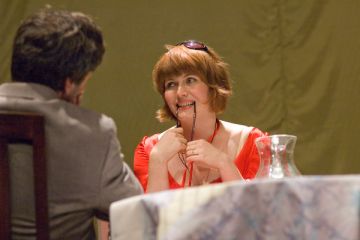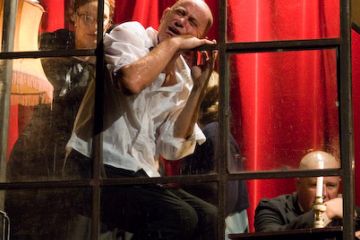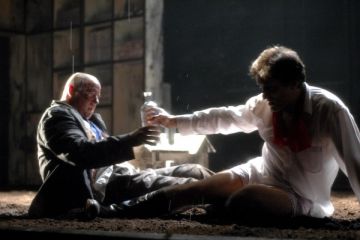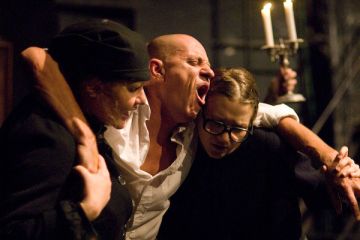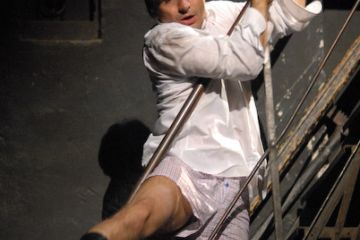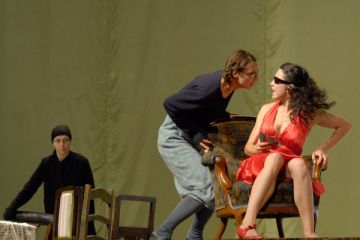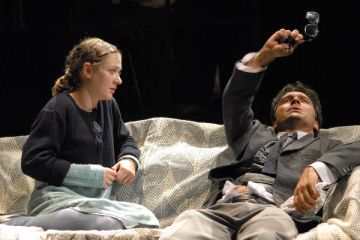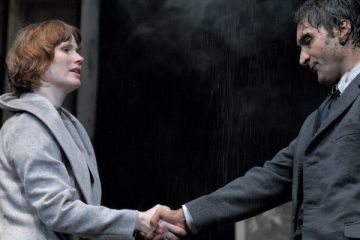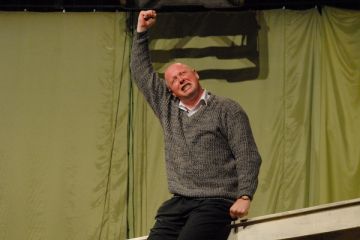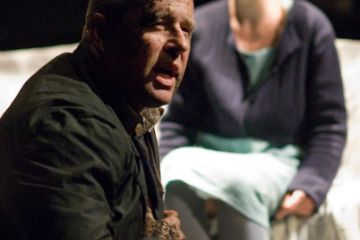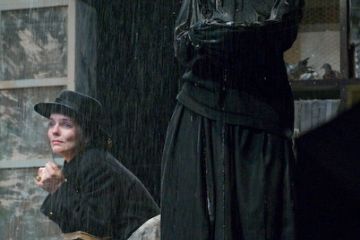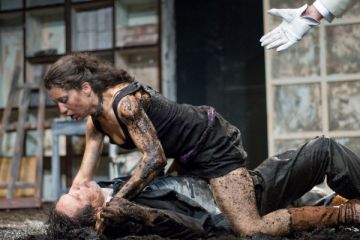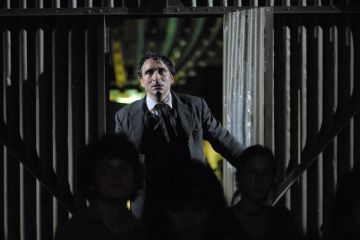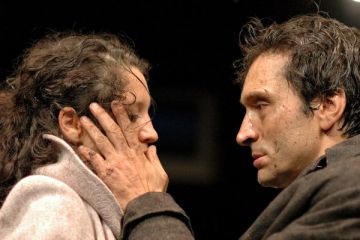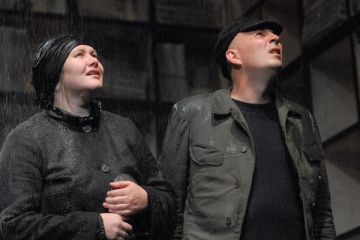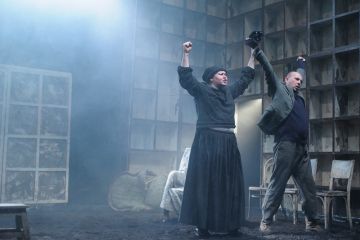Studio Performance in the Main Hall
3 hours and 15 minutes with one intermission.
The Cluj Uncle Vanya is a revelation. I haven’t seen a better performance this year. Şerban doesn’t direct a depressed, lamenting, languidly dreamy Chekhov, but one that is unbeatably effervescent. He allows himself a lot of impertinent, fanciful gags and cheap jokes that he expects from the actors as well. Yet, at the same time, he builds every character very precisely.
Gábor Bóta: Bombasiker lett a Ványa bácsi [Uncle Vanya Has Become a Smash Hit], Magyar Hírlap, December 10, 2007
At the Hungarian Theatre of Cluj I saw an eventful performance, in the truest sense of the word, perhaps the most thrilling theatrical demarche on our stages since the memorable Hamlet at the National Theatre of Cluj, the vision of the late director, Vlad Mugur. It was Uncle Vanya by Anton Pavlovich Chekhov, based upon Paul Schmidt’s stage version and directed in a completely astounding way by director Andrei Şerban who — after many years — makes a vivid comeback with this text, that was staged to worldwide acclaim at La MaMa Theatre in New York. [...] the performance achieved this time here in Cluj, must be accredited undoubtedly both to the talent of the director, his extreme boldness and professional culture, and to the exceptional qualities demonstrated by the performers, something that confirms Andrei Şerban’s observation that one rarely meets — either in Romania or in the world — so many very good actors playing on the same stage. […] Perhaps not since the Greek Trilogy staged at the National Theatre of Bucharest (what a performance!) has there been another artistic discourse signed by Andrei Şerban where we could behold such a fascinating inventiveness in considering and reconsidering the theatrical space until now. Practices of traditional theatre — deployed on the “Italian stage”— are interlaced here with a theatre of splendid “improvisations,” that regains with assiduous fantasy everything that stands before or behind the scene or on the flies, with successive changes of perspective in the relationship between actors and spectators, often implying “mutations” of emotional substance between both sides. Nurtured and divinized by the humanity of the arresting sanguineness of the interpreters, condemned to refuse themselves any moment of quietness, everything seems to transform in a magic and ineffable space which creates among the eighty spectators-partners a slightly hallucinatory mood that is overwhelming. […] A performance truly memorable through its mystery and its truths, that destroys first and last the distance between author, characters, and spectators. It demolishes our traditional comfort, (if not quite the intellective dullness of a large part of the public) — and offers to us in return the luminous satisfaction of sharing in the absolute triumph of an absolute theatre of very good quality.
Uncle Vanya, Andrei Şerban’s first mise en scène at the Hungarian Theatre of Cluj — the most united company from the point of view of value, unconditionally dedicated to theatrical art — is, thanks to the intelligence and grace of the “instrumentalist,” the performance of a testimony on unforgetfulness — in the sense of the Greek archetype of Aletheia […] A production of which we would go to the length of saying is a masterpiece.
A special performance from every point of view, an ingenious way of using the space of the stage, an innovative reading of Chekhov’s text, a totally justified, original re-dimensioning of the characters, and irreproachable acting. The first thing that impresses us is the creative manner in which Andrei Şerban masters the theatrical space, its architecture and the stage-technique. The actors are everywhere and the space of the hall is utilized in all directions. Nothing is as we would expect it; we are constantly surprised by what is offered.
Oltiţa Cântec: Supunerea spaţiului teatral [Overpowering the theatrical space], Teatrul azi, nr. 10-11-12/2007
Andrei Şerban’s mise en scène is a theatrical event for at least two reasons: it flashes a new beam of light on the pathos of the chekhovian heroes, reinvigorating the play from the beginning to the end through a total reading of it, to the deepest fibre of any meaning which is linked to the human being, in such a way that we have the impression that things are happening here and now.
Those for whom “love” means nothing but generosity and an endless floundering towards innovation, an ingenious seeking of the way towards eternity, and those for whom every new reading of Chekhov’s texts means the joy of discovering a new gallery in the depths circumscribed by this magician of human nature, will greet the Cluj performance with great pleasure and will understand better than ever before that “Chekhov, our contemporary” isn’t only a perfectly valid syntagm, but something infinitely more and serious. It’s a diagnosis. It’s the diagnosis of the disease with which we pass into the 3rd millennium, we who live after “one hundred, two hundred years,” who are invoked by Chekhov’s characters so many times and with so much confidence.
What were these 100 spectators applauding? A play written by a 19th century Russian author: “Uncle Vanya,” by Anton Pavlovich Chekhov. A group of first class 21st century actors from the Hungarian State Theatre of Cluj in an alternating cast. They were dancing 20th century Argentinean tangos. The creator of the scenery and the costumes, Carmencita Brojboiu, was inspired by all three centuries. The Romanian director, whose art infiltrates every pore, was Andrei Şerban.
The performance is uniform, with no jerks or falters despite the fact that it consists of thousands of small pieces of mosaic (…). It is real theatre in the theatre, where everything is changing, taking shape, yet everything has a given place and time.
Zsolt Karácsonyi: Ványa és az idegenek [Vanya and the Strangers], Irodalmi Jelen, December 2007.
The actors’ interpretation merits underlining at the highest level. [...] The performers demonstrate an excellent stage technique, combined with a total dedication to acting. [...] It is one of the most interesting performances of recent years.
Horaţiu Damian: ‘Unchiul’ lui Şerban [Şerban’s ‘Uncle’], Foaia Transilvană, August 30, 2007
Andrei Şerban maximizes two theatrical dimensions, space and time, in this way giving questions an opportunity to receive their answers, their best answers. It isn’t a Vanya full of affectation, of the salon, of gallantry and good manners. It’s exactly the opposite. These are tough characters and the director takes a hard look at them with no gloves on, analyzing them to the smallest detail.
Demostene Şofron: Unchiul Vania sau şansa descoperirii prin experienţă [Uncle Vanya or the chance of discovering through experience], Făclia, September 5, 2007










